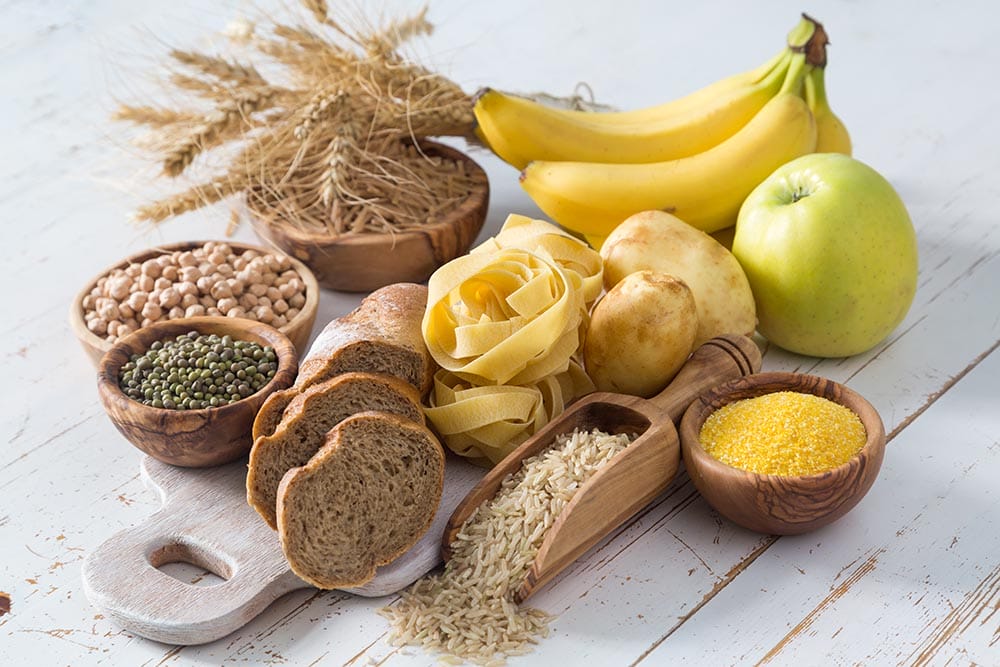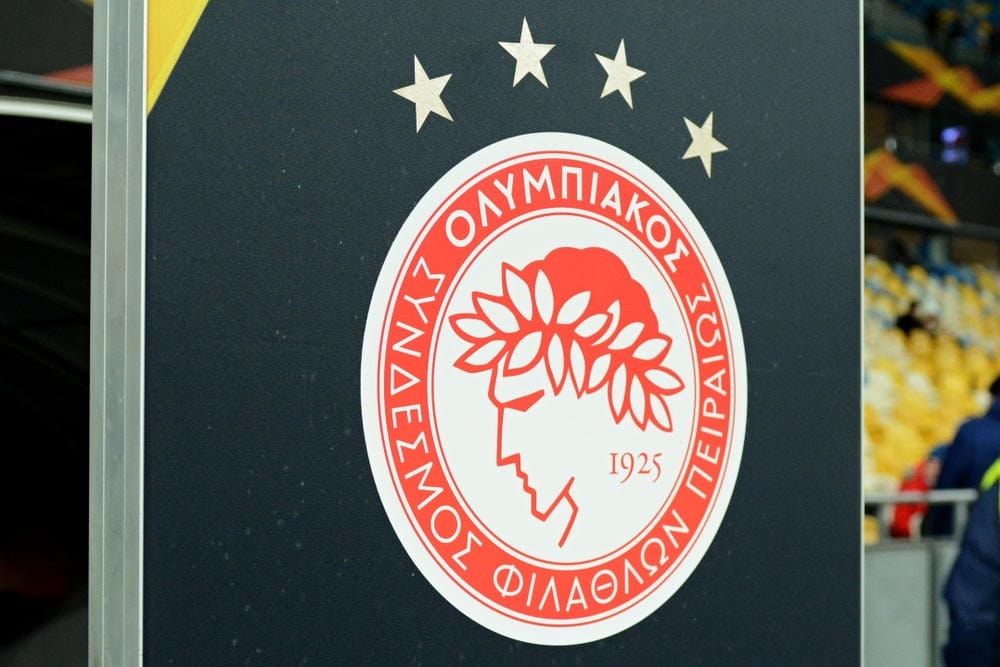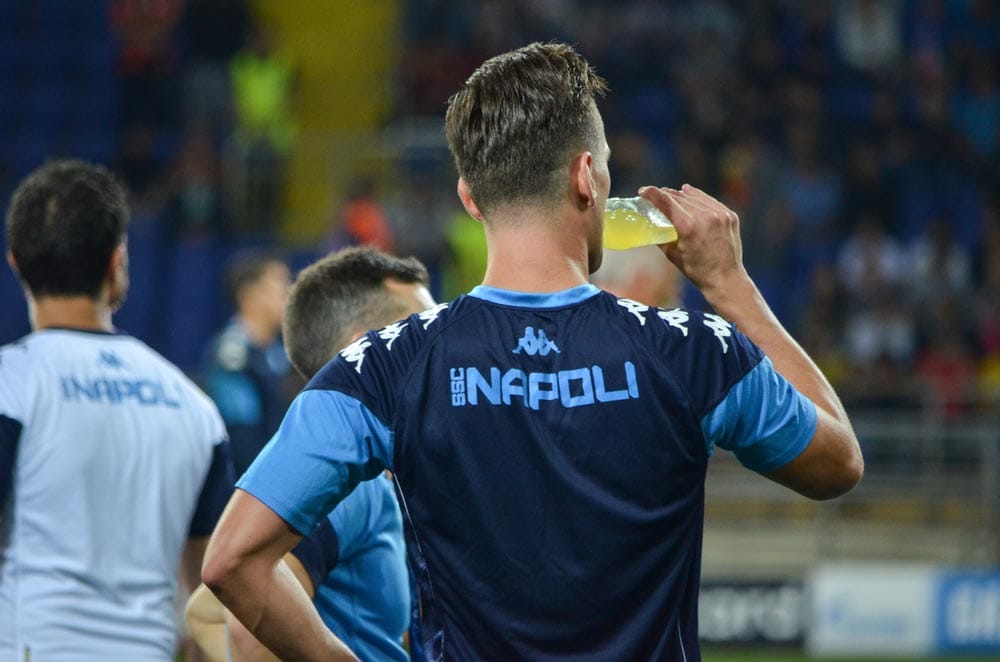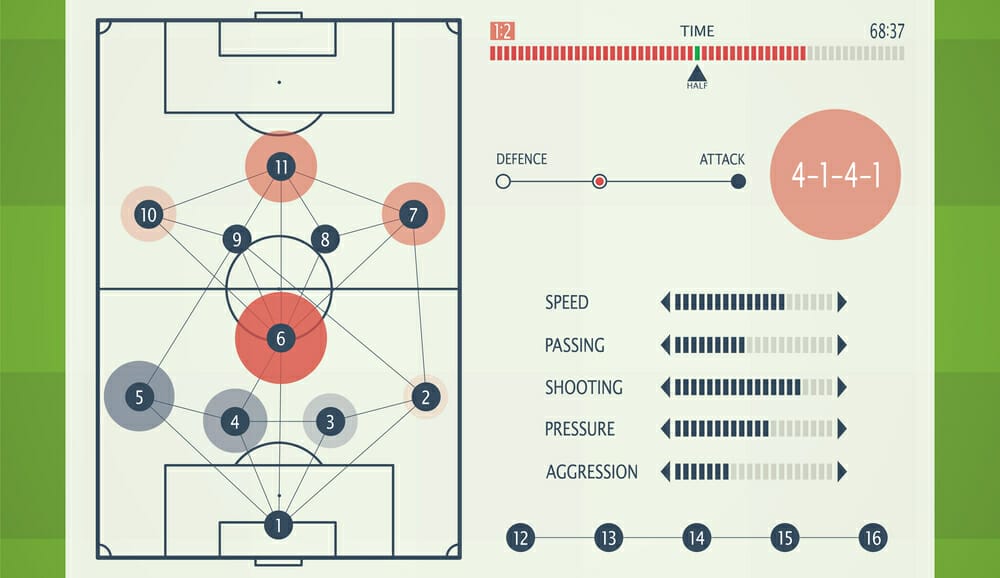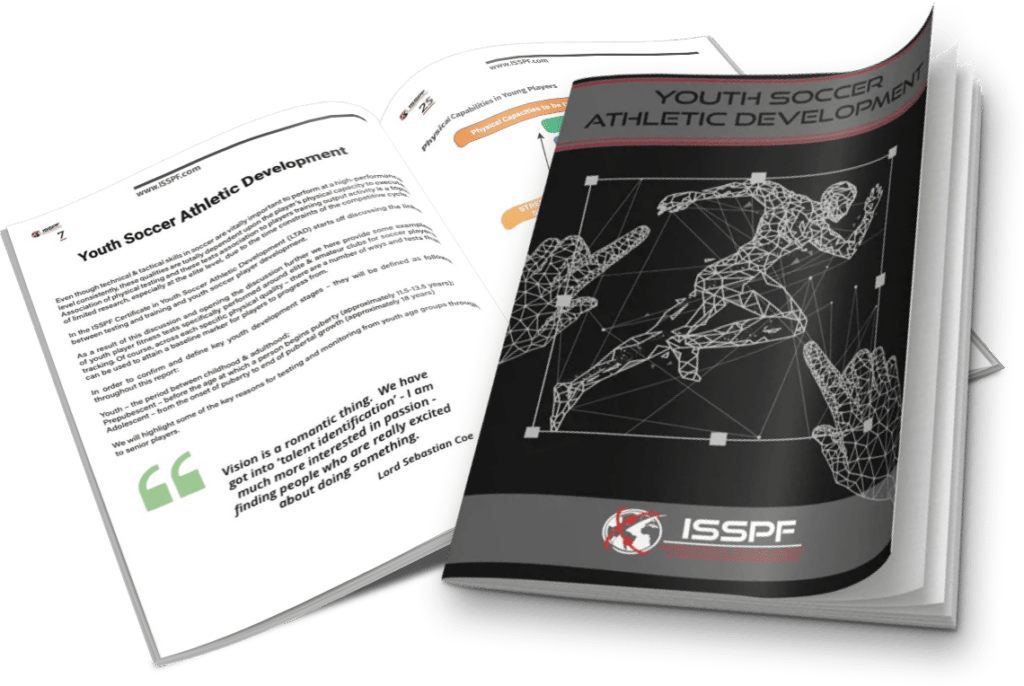The Importance of Nutrition in Soccer: Fuelling the Elite Performance
Written By: Dr. Eirini Manthou (Performance Nutritionist, Olympiacos FC, Greece)
Soccer is a highly demanding sport that requires a combination of physical prowess, technical skills, and tactical awareness. Athletes dedicate themselves to rigorous training programs to excel on the pitch. However, amidst the pursuit of athletic excellence, the significance of nutrition should not be overlooked.
In recent years, nutrition has gained traction in soccer, because of its high importance on performance. This article delves into the principles and practical applications of nutrition and nutritional periodisation, highlighting its importance in the preparation, performance, and recovery phases of the sport.
Why Carbohydrates Are Vital for Soccer?
Carbohydrates are the powerhouse of energy for soccer players. As one of the most physically demanding sports, soccer requires constant movement, sprinting, and intense bursts of energy.
To perform at their best, soccer players must fuel their bodies with the right nutrients, with carbohydrates taking center stage in their diet at particular times during the season. They provide the necessary energy for endurance, speed, and explosive movements, while also supporting cognitive function and aiding in post-exercise recovery.
By prioritizing carbohydrate intake and choosing healthy sources such as whole grains, fruits, vegetables, and legumes, soccer players can optimize their performance, maintain stamina throughout matches, and enhance their overall success on the field.
Take the Intermediate Nutrition for Football Course
Intermediate Nutrition for Football Course
The Importance of Carbohydrates for Soccer Performance
1. Energy Production: Carbohydrates are the body’s primary source of energy. During high-intensity exercise, such as sprinting, dribbling, or making quick movements, the muscles rely heavily on carbohydrates to fuel these activities. Soccer players need a steady supply of energy to sustain their performance throughout matches, and carbohydrates provide the necessary fuel to meet these demands.
2. Glycogen Storage: Carbohydrates are stored in the body as glycogen in the muscles and liver. Glycogen serves as a readily available energy source during physical activity. Soccer players with well-stocked glycogen stores can tap into this energy reservoir, allowing them to maintain optimal performance for longer periods. Proper carbohydrate intake ensures that glycogen stores are replenished after intense training sessions or matches, promoting efficient recovery.
3. Endurance and Stamina: Soccer matches can last up to 90 minutes or even longer, including extra time. Endurance and stamina are vital for players to sustain their performance throughout the game. Carbohydrates provide the necessary energy to support aerobic metabolism, allowing players to maintain a high level of performance and prevent fatigue as the match progresses. Well-fueled muscles delay the onset of exhaustion, enabling players to execute technical skills effectively and make sound decisions on the field.
4. Speed and Explosiveness: Soccer is a sport that demands explosive speed and quick movements. Carbohydrates play a key role in providing the energy needed for rapid acceleration, deceleration, and swift changes in direction. The fast-twitch muscle fibers responsible for these explosive movements rely heavily on carbohydrate energy stores. By consuming an adequate amount of carbohydrates, soccer players can enhance their speed, agility, and overall performance on the field.
5. Cognitive Function: Soccer is not just a physically demanding sport; it also requires mental agility, quick decision-making, and focus. The brain primarily relies on glucose, derived from carbohydrates, as its primary energy source. Optimal carbohydrate intake ensures that the brain receives a sufficient supply of glucose, allowing players to maintain mental sharpness and make accurate judgments during matches.
6. Recovery and Injury Prevention: Carbohydrates play a vital role in post-exercise recovery and injury prevention. During intense training sessions or matches, muscle glycogen stores become depleted. Consuming carbohydrates after exercise helps replenish glycogen stores, promoting efficient recovery and reducing the risk of muscle breakdown. Adequate carbohydrate intake also supports the immune system, helping to ward off illness and maintain overall health.
The Significance of Protein for Soccer Players
Protein is an essential nutrient that plays a critical role in the development, maintenance, and repair of tissues in the body. For soccer players, who engage in intense physical activity and undergo significant muscle stress, protein is particularly important. It supports muscle repair, development, and strength, aids in injury prevention and rehabilitation, boosts immune function, contributes to energy production, and assists with weight management.
Soccer players should ensure they consume adequate protein from sources such as lean meats, poultry, fish, dairy products, legumes, and plant-based alternatives to optimize their performance, enhance recovery, and support overall health.
Why Protein is Vital for Soccer Performance
1. Muscle Repair and Recovery: Soccer involves constant running, jumping, and tackling, which puts stress on the muscles. Protein is essential for muscle repair and recovery after intense training sessions or matches. During exercise, small tears occur in muscle fibers, and protein provides the building blocks necessary for their repair. Consuming adequate protein helps optimize recovery, reduce muscle soreness, and prepare the body for the next training session or game.
2. Muscle Strength and Development: Soccer players rely on strong muscles to perform various movements, such as sprinting, kicking, and changing direction. Protein is crucial for muscle strength and development. It supplies amino acids, the building blocks of proteins, which are necessary for the growth and maintenance of muscle tissue. Adequate protein intake, in conjunction with resistance training, supports muscle growth and enhances overall strength, enabling players to perform at their best on the field.
3. Injury Prevention and Rehabilitation: Soccer players are susceptible to injuries due to the physical demands of the sport. Protein plays a vital role in injury prevention and rehabilitation. It supports the formation of collagen, a protein that strengthens tendons, ligaments, and other connective tissues. Strong and resilient connective tissues reduce the risk of injuries such as strains, sprains, and ligament tears. Protein also aids in the healing process by promoting tissue repair, which can speed up recovery from injuries.
4. Immune Function: Engaging in intense physical activity can temporarily suppress the immune system, making athletes more susceptible to illnesses. Protein is essential for maintaining a robust immune system. It supports the production of antibodies, which help fight off infections and keep the body healthy. Soccer players who consume adequate protein can better defend against common illnesses, ensuring consistent participation in training and matches.
5. Energy Production: While carbohydrates are the primary fuel source for high-intensity exercise, protein can contribute to energy production during prolonged periods of physical activity. When carbohydrate stores become depleted, the body can convert protein into glucose through a process called gluconeogenesis. This helps sustain energy levels and delay fatigue during extended matches or training sessions.
6. Satiety and Weight Management: Protein-rich foods tend to be more satiating than carbohydrates or fats. Including protein in meals and snacks can help soccer players feel fuller for longer and prevent excessive calorie consumption. By promoting satiety and providing a steady supply of essential nutrients, protein can aid in weight management and body composition goals, allowing players to maintain a healthy weight and optimal performance.
Hydration Strategies
Proper hydration is crucial for optimal performance and should be maintained during training sessions and matches. Soccer players must monitor their fluid balance, taking into account individual sweat rates, environmental conditions, and the duration and intensity of exercise. Personalized hydration strategies can be developed, incorporating electrolyte-rich beverages to replenish lost fluids and maintain electrolyte balance.
Understanding Nutritional Periodisation
Nutritional periodisation involves tailoring an athlete’s dietary plan to suit the specific demands of different training, competition, and recovery periods. It recognizes that nutritional needs vary throughout the season and strategically manipulates macronutrient ratios, caloric intake, and meal timing to optimize energy availability, support training adaptations, and enhance recovery.
Preparation Phase: The preparation phase serves as the foundation for an athlete’s performance. During this period, soccer players focus on building endurance, strength, and conditioning. It is also a period that important body composition changes may take place. To fuel increased training needs and support adaptations, adequate energy intake and proper macronutrient distribution are essential. Carbohydrates should form the cornerstone of a soccer player’s diet during the preparation phase. They serve as the primary energy source for high-intensity exercise, supplying the muscles with glycogen. The intake of complex carbohydrates such as whole grains, fruits, and vegetables should be prioritized to provide sustained energy release.
Performance Phase: The performance phase encompasses the critical moments leading up to and during a match. Proper nutrition during this phase is essential for peak performance on the pitch.
Pre-Match Nutrition: The pre-match meal plays a pivotal role in providing the necessary energy for optimal performance. It should consist mainly of carbohydrates, and low levels of proteins and fat. Consuming this meal 3-4 hours before kick-off allows for proper digestion and ensures the availability of energy during the match.
Snacks consumed closer to match time should primarily consist of easily digestible carbohydrates to avoid discomfort on the field. These can include fruits, energy bars, or sports drinks. It is important to consider individual preferences and tolerance when choosing pre-match snacks.
Match Nutrition: During the game, maintaining energy levels is crucial to sustain performance. Soccer players should consume small amounts of carbohydrates and fluids during breaks or halftime to replenish glycogen stores and prevent fatigue. Sports drinks, energy gels, or easily digestible snacks can be beneficial for maintaining glucose levels and delaying fatigue during the match.
Recovery Phase
The recovery phase is a critical period for replenishing energy stores and facilitating muscle repair and growth after intense training sessions or matches.
Glycogen Replenishment: Following exercise, glycogen stores become depleted. Rapid glycogen replenishment is essential to optimize recovery and promote muscle repair. Consuming a carbohydrate-rich meal or snack within 30 minutes post-exercise maximizes glycogen synthesis. This can be achieved by incorporating high-glycemic index carbohydrates, such as white rice, potatoes, or bread, into the post-exercise meal.
Protein and Muscle Recovery: Protein intake after exercise is vital for muscle repair and growth. Soccer players should consume a high-quality protein source within 1-2 hours post-training or match. This can be accomplished by including lean meats, poultry, fish, dairy products, or plant-based alternatives in their post-exercise meals.
Nutritional Periodisation and Long-Term Performance
Implementing nutritional periodisation over the long term helps soccer players adapt to the ever-changing demands of the sport. It allows for adjustments in energy intake, macronutrient distribution, and nutrient timing based on training cycles, competition schedules, and individual needs.
Regular monitoring, such as body composition assessments and blood tests, can provide valuable insights for fine-tuning nutrition strategies to optimize performance.
Conclusion
In the quest for success in soccer, nutrition plays a vital role. Nutritional periodisation offers a strategic framework to optimize an athlete’s preparation, performance, and recovery.By tailoring nutrition strategies to the specific demands of each phase, soccer players can enhance energy availability, improve endurance, support muscle repair, and achieve peak performance on the pitch.
Incorporating these principles into training programs not only benefits individual players but also enhances team success.As the field of sports nutrition continues to evolve, athletes who prioritize proper nutrition and embrace the concept of nutritional periodisation will gain a significant advantage in their quest for excellence in soccer.
What Now?
New literature in this space has reported a new way of maximising nutritional intake through individualised ‘nutritional periodisation’ strategies, however this is discussed in more depth within the ISSPF online sport nutrition courses.
Furthermore, many experts in sport & football nutrition such as Dr. Eirini Manthou (ISSPF Faculty Member), Virginia Santesteban (ISSPF Faculty Member) CF Real Sociedad ‘Head of Performance Nutrition’ & Dr. Lloyd Parker (ISSPF Faculty Member) Everton FC ‘Head of Nutrition’ plus many more global experts, cover in detail the role of nutrition across all levels of the game within our ISSPF accredited sports nutrition online course.
Intermediate Nutrition for Football Course
What Does This Course Cover?
Outline of the accredited Intermediate Sports Nutrition online course:
- Required skill sets of the soccer nutritionist: What’s really required?
Delivered by Dr. Lloyd Parker
- Nutritional Support for the Youth Soccer Player
Jack ChristopherDelivered by Jack Christopher MSc (Chelsea FC)
- Soccer specific fuelling (a): the role of carbohydrates
Delivered by Helen Bauhaus
- Energy requirements for soccer: nutritional periodisation
Delivered by Dr. Liam Anderson
- Soccer specific fuelling (b): the role of dietary fats
Delivered by Helen Bauhaus
- Nutritional planning: method & strategies
Delivered by Margarita Posada MSc
- Soccer specific fuelling (c): the role of protein
Delivered by Dr. Eirini Manthou
- Dietary Considerations for Vegetarian and Vegan Soccer Players: Nutritional Periodisation Part 1
Delivered by Prof. Nikos Koundarakis
- Dietary analysis methods: a soccer player case study
Delivered by Dr. Liam Anderson
- Dietary Considerations for Vegetarian and Vegan Soccer Players: Nutritional periodization Part 2
Delivered by Prof. Nikos Koundarakis
The demand for sport nutrition experts, performance & coaching specialists in football & team sports is growing year upon year. Thousands of students are leaving university with a sport science degree, however many of them asking the key question – What now?
- How do I get a job in football?
- What’s the next step?
- Which area of sport or football science do I want to specialise in?
This is certainly an interesting question as progressing from completing a sport science or nutrition related degree to then working in professional football & trying to understanding all the key components, and soft skills that come with jobs in football or careers within sport.
The bespoke courses developed by ISSPF Elite Faculty members are a way of further exposing sport science & nutritional related students, individuals working within the game & other football science enthusiasts with a thirst to develop further in this specific nutrition & performance area.
The link below will take you to the hugely popular & expertly designed ISSPF endorsed & accredited Soccer & Sports Nutrition online course, where you will be exposed to football science & specific sports nutrition coaching led research, practical examples used by leading practitioners.
Intermediate Nutrition for Football Course
Why is this Course Important?
- Understanding the key energy sources required to perform repeated high intensity & explosive movements within the intermittent nature of soccer is of paramount importance.
- Fueling to perform & recover from both training, competitive games is very specific across a range of levels of the game.
- All practitioners and coaches can only benefit themselves and their players even further by having a more in-depth knowledge of sports nutrition.
- May help us to reduce the risk for non-contact muscle injuries, through a better understanding of key timing of nutrients.
Who is this Course for?
- Individuals tasked with the responsibility for the training & coaching aspects of both individual athletes or team sports.
- Individuals with an interest in developing their knowledge in the nutritional preparation, training & development of individual athletes or team sports.
Share this article:


